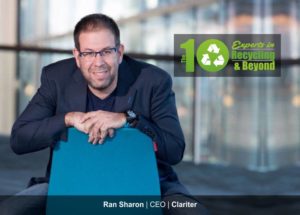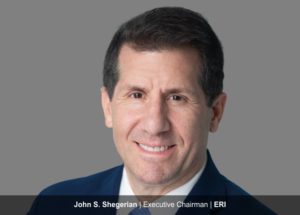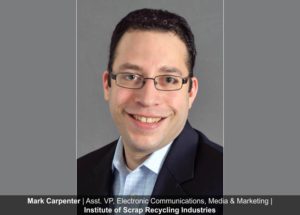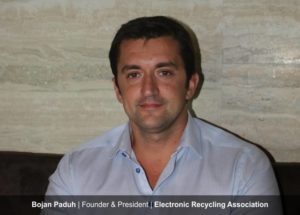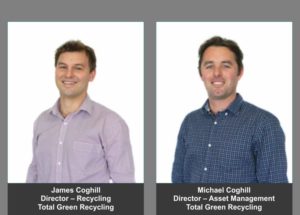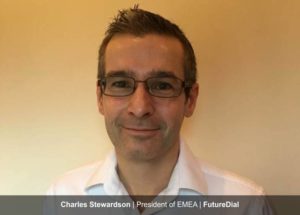EREF Makes Waste Management Easy, Convenient and Swift
The 10 Experts in Recycling and Beyond
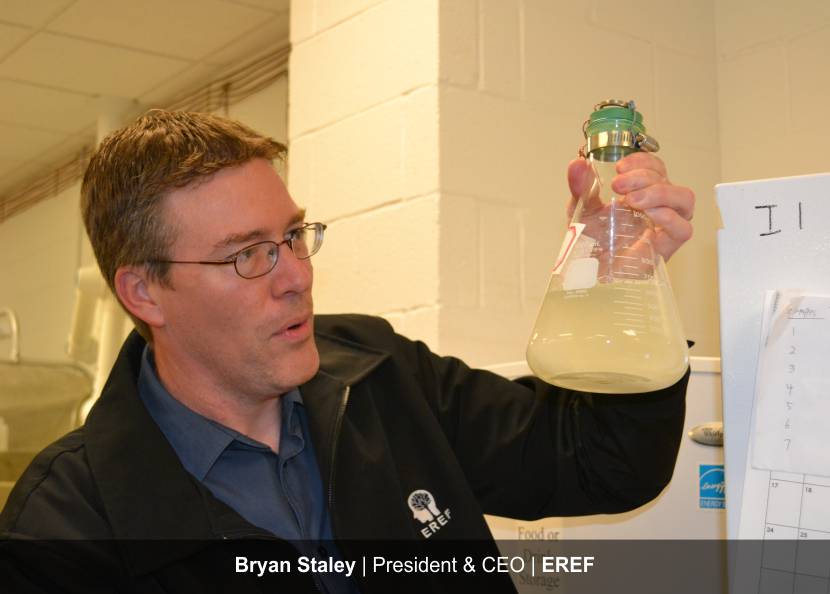
Waste management is a noble work that helps in maintaining a
clean and healthy environment. Imagine if our surrounding is loaded with
papers, plastic, waste products, garbage etc. lying all over. That is not a
very pleasant sight to see, right? Well, waste management activities take care of this. In simple words, waste management is the collection, transportation and proper disposition of waste products. Environmental Research and Education Foundation (EREF), is an organization that funds and directs scientific research and education initiatives to benefit the solid waste industry and communities it serves. With a mission to develop and evaluate new approaches to manage municipal solid waste and to provide scholarships to America’s brightest and best EREF is one of the leading organizations in its field today. As we put together a brief of their remarkable journey, we hope to spread the word and bring about an awareness on the importance of waste management and recycling.
The Initiation of EREF
The environmental movement began gaining traction in the 60s
and 70s, leading to a push for better regulation and better management of solid waste. Regulations were being enacted with little sound science on which to base the regulations, some of which at a substantial expense to waste management companies. There was a need for empirical solid waste science on which to base these regulations and practices. Several industry executives came together to form an organization that would conduct the research and build the science-based foundation the industry needed. The founders realized it should be chartered as a non-profit, 501(c)3 whose sole purpose was to fund research that would benefit the industry and the communities they serve. This non-profit organization was the Environmental Research & Education Foundation. As a non-profit, the initial challenges were money and credibility. The founders recognized the need for a Board of Directors, but joining the Board meant donating $50k. It is difficult to bring in donations when there’s no track record of successes. However, the founders formed a Board of professionals who believed in the mission of EREF and as the donations increased, so did the work that the Foundation was able to do. As the EREF-funded research gained momentum, the Foundation gained traction as a credible organization, and 25 years later they have become one of the largest sources of funding for solid waste research in North America.
The Service of Excellence by EREF
EREF’s mission is to fund and direct scientific research and education initiatives to benefit the solid waste industry and communities it serves. EREF accomplishes its mission through a number of programs related to
research and education. Initially, EREF’s sole focus was the Research Grants program through which the Foundation receives proposals and funds scientific research in areas where data is lacking. In 1998, one of EREF’s founding members passed away, leaving an endowment, which was to fund a graduate student pursuing an education in the solid waste field. Both programs have grown substantially over the last 25 years with over 100 grants projects funded and over 80 scholarships awarded. In 2011, EREF initiated its Education Program with its first Summit on Sustainable Solid Waste Management. This program now includes online courses and webinars, and summits typically bring in 100-300 attendees. EREF’s Data & Policy Program (formerly called the Internal Research Program) is the Foundation’s internal research arm, conducting research in areas identified as lacking significant data. The program also employs undergraduate students interested in solid waste to help with data aggregation and analysis. Given the Foundation’s focus on students, EREF
started its Internship in Excellence Program (IEP) in 2018 to connect waste
industry companies seeking interns with undergraduate and graduate students in need of internships. The Foundation also released its MSW eTextbook in 2018 to simplify the teaching process for instructors and engage and excite students studying solid waste or sustainability.
The Growth Strategy of EREF
One could argue that as a non-profit, one needs to ensure the mission of the organization resonates with prospective donors in order to grow the organization. This is, without a doubt, a true statement. However, beyond this EREF has adopted a strategy of ensuring that it’s programs also provide value (beyond philanthropy) to its donor base. This takes many forms but is primarily centered around building connections between
students and the industry and advancing sound science and data related to sustainable waste management practices. Additionally, this value-added focus they believe extends to upstream product manufacturers, whose decisions on what the make ultimately dictate what must be thrown away from a packaging standpoint. In this respect, EREF define growth not in terms of revenue and awareness building, but in how many students they educate, how many grants have been given and what the impacts have been and if programmatic efforts have been successful at improving sustainability, minimizing risk and increasing efficiency of waste management practices.
The Life of the Leader
In addition to the typical management activities that most might envision in this role, Bryan Staley, President and CEO of EREF likes to understand the details of what the team is doing. He feels that as an ambassador for the organization the more he can understand what is happening at all levels the more effective he can be in evangelizing EREF’s mission. With this said, some of the most satisfying aspects in working at EREF is being part of a great team of professionals and connecting with students, and seeing a strategic vision become reality. Bryan grew up on a farm where he saw directly how we can control and influence our environment. This experience he believes prepared him very well for what he does today. Life on a farm can be challenging, you learn to see adversity or challenge not as something to be avoided or scared of but as everyday problems to be solved and move on with. “In this respect, I’ve found that being successful at what you do is a recipe including tenacious persistence, knowledge of what you are doing (and a little bit of luck doesn’t hurt). In this respect, I’d dreamed of doing something that has a positive influence on the world, ideally connected with the land/environment (due to my farming roots)
and that offers a challenge and variety. I feel personally I have been able to achieve this through prior experiences as a consulting engineer, researcher and now at EREF.”, Bryan shares.
Describing his journey thus far Bryan shares, “A running joke in this industry is that no one ever makes plans to be in the garbage industry. It just happens and once you are in it you never go away, but rather get ‘recycled’ into other companies. The same is true for me.”. He went back to get a doctorate degree thinking to become a university professor and wound up doing research related to landfills. Along the way, he received a
scholarship from EREF and made a presentation to its Board of Directors. When beginning my job search, EREF reached out to him to see if he wanted a job. He wound up accepting the position and not long after was promoted to run the organization. “Working at EREF has been the most fulfilling career I have had. The waste field is filled with great people who genuinely want to make a difference in our society and the lives of people. I am honored to be a part of it.”, he adds.
The Vision of a Motivated Team
The defining factor separating EREF from other similar organizations is the Foundation’s non-advocating stance. EREF exists to fund and conduct the science the industry needs to advance, disseminating all findings whether positive or negative for the public good. When EREF was founded, it was the research arm of a trade organization. However, the trade organization participated in advocacy, calling into question the Foundation’s credibility as a 501(c)3, empirical science-driven non-profit. In 1998, the Board of Directors voted to separate from the trade organization, and EREF became its own entity. A key factor that motivates them as a team is that Bryan believes they all have a passion for what they do and genuinely enjoy what they do. They have worked hard to build a positive, team-based culture in the organization where they lean on each other, which has helped them get through some very long days from time to time. Beyond this, Bryan likes to believe they all want to work somewhere that they think is making a positive difference. This means that they aren’t just bringing home a paycheck or striving for personal success, they’re working to make the world a better place.
The Future of EREF
As the environmental movement gained traction in the 60s and
70s, the recycling symbol was created, and Americans focused on reducing waste to reduce environmental burdens. While recycling is now the 2nd most common method of disposal after landfilling, with Americans recycling approximately 1.3 lbs per person annually, the rate of recycling is relatively low (21%) and a significant portion of materials that could be recycled are not. Many points to a lack of consumer education and standardization around recycling as some of reasons why this is the case. So, what does that mean for the future of recycling? Some would say that recycling is dying. However, with standardization of what can be recycled, public education and open lines of communication between the packaging and waste industries, the future of recycling is still a sustainable method for managing waste.
EREF already exists as an international organization and has strived to have an international presence in order to have a larger picture of
solid waste management. While EREF’s focus is largely the U.S. and Canada, its programmatic efforts extend into Europe, with growing awareness in other areas of the world as well. For example, the Foundation awarded its first international scholarship to Alexander Orlov, PhD student at Cambridge University, in 2001. With this said, primary awareness of EREF is relegated to those working in the solid waste field. However, waste management is a societal issue and thus key future efforts moving forward are focused on growing awareness of EREF’s mission to those that make and sell the products that ultimately result in waste creation (e.g. product manufacturers and retailers) and the consumers that buy these products.
EREF is surely transforming the present and future of the environment.
They have come a long way and are making relentless efforts to create awareness about their purpose to make a better tomorrow.





